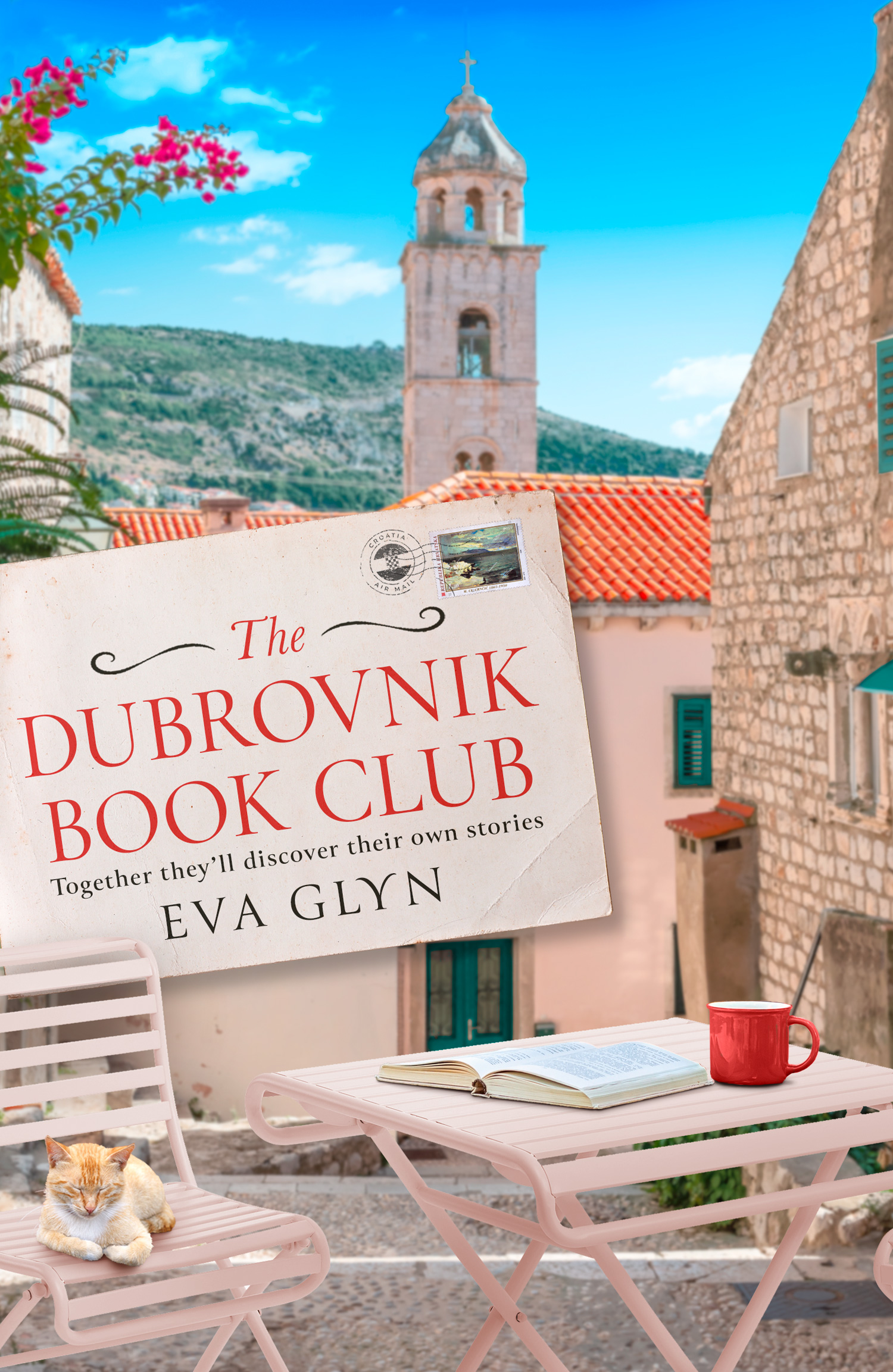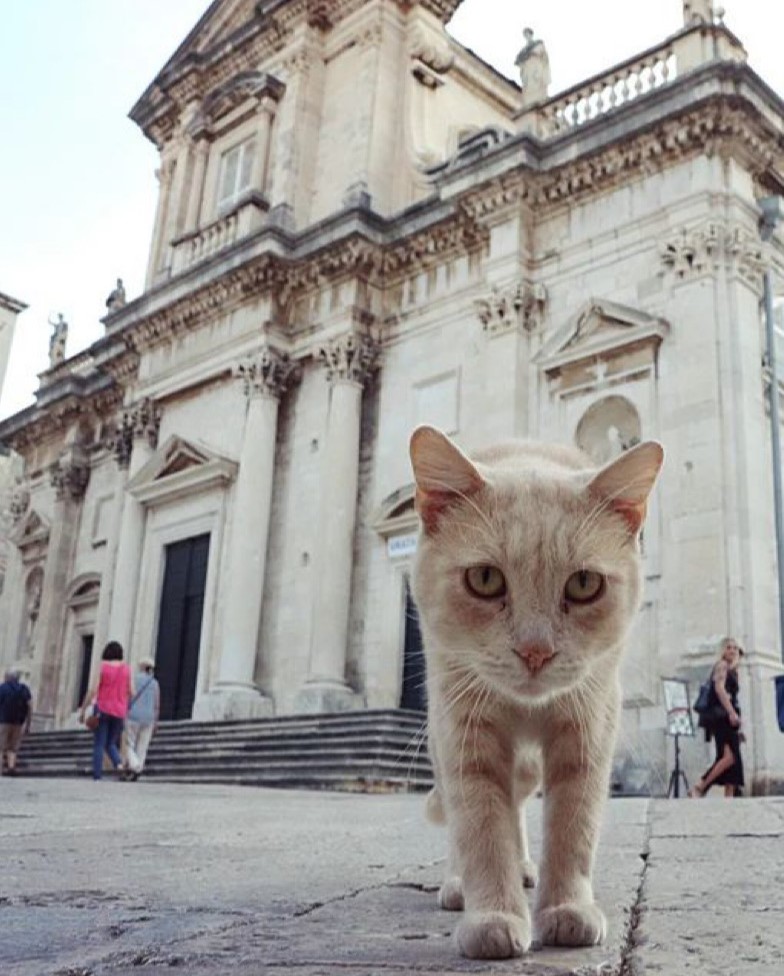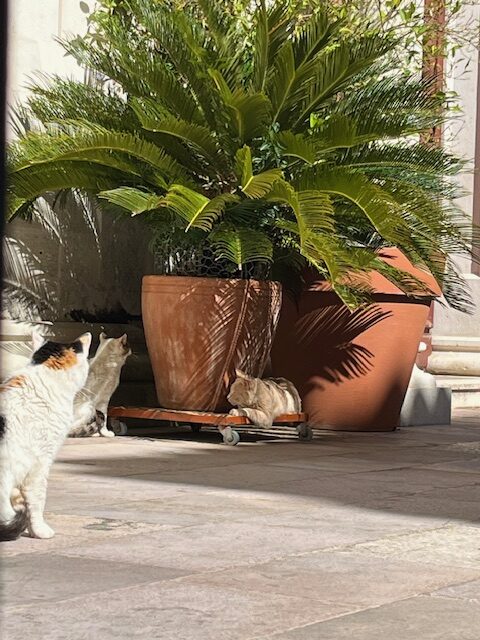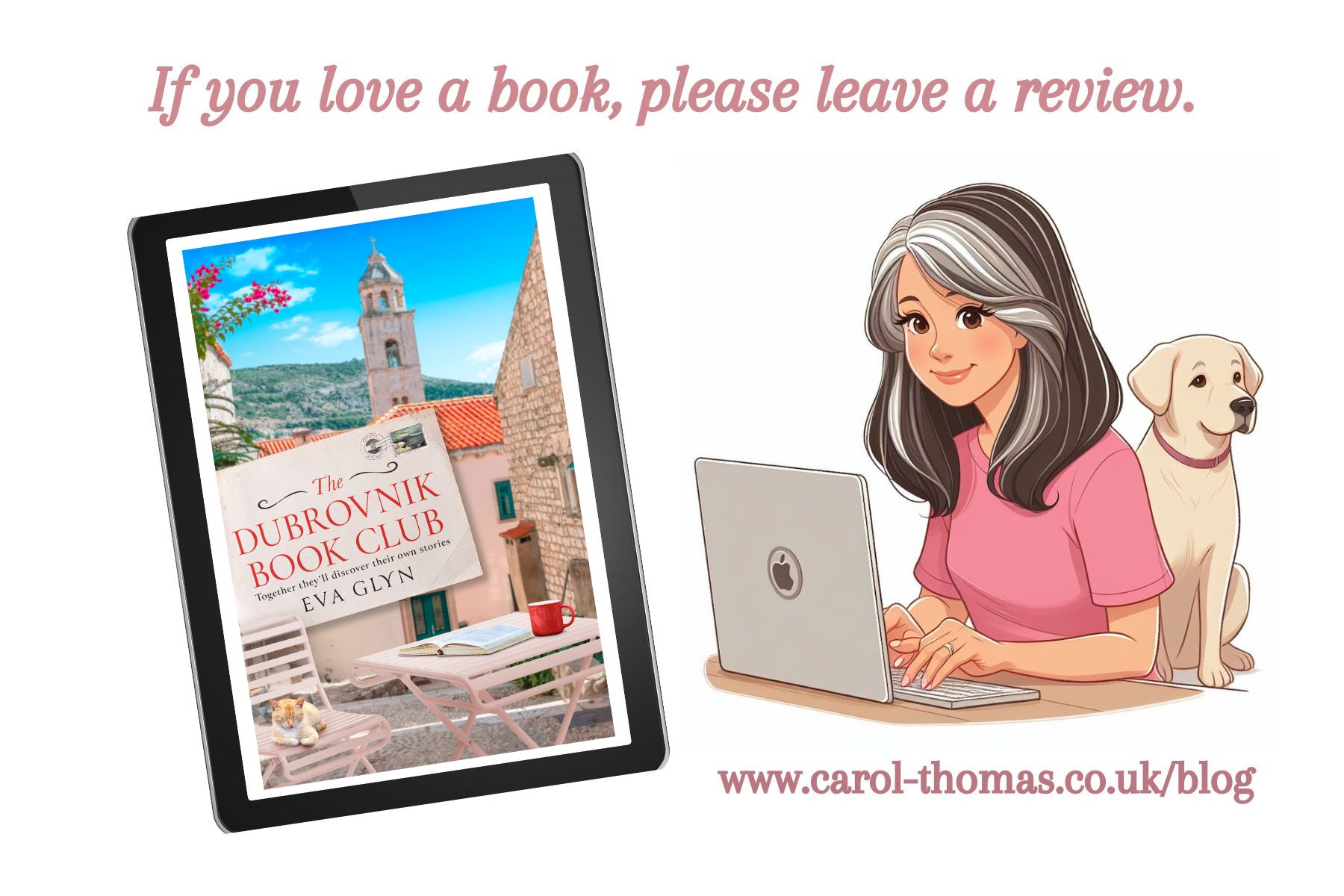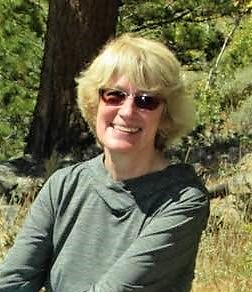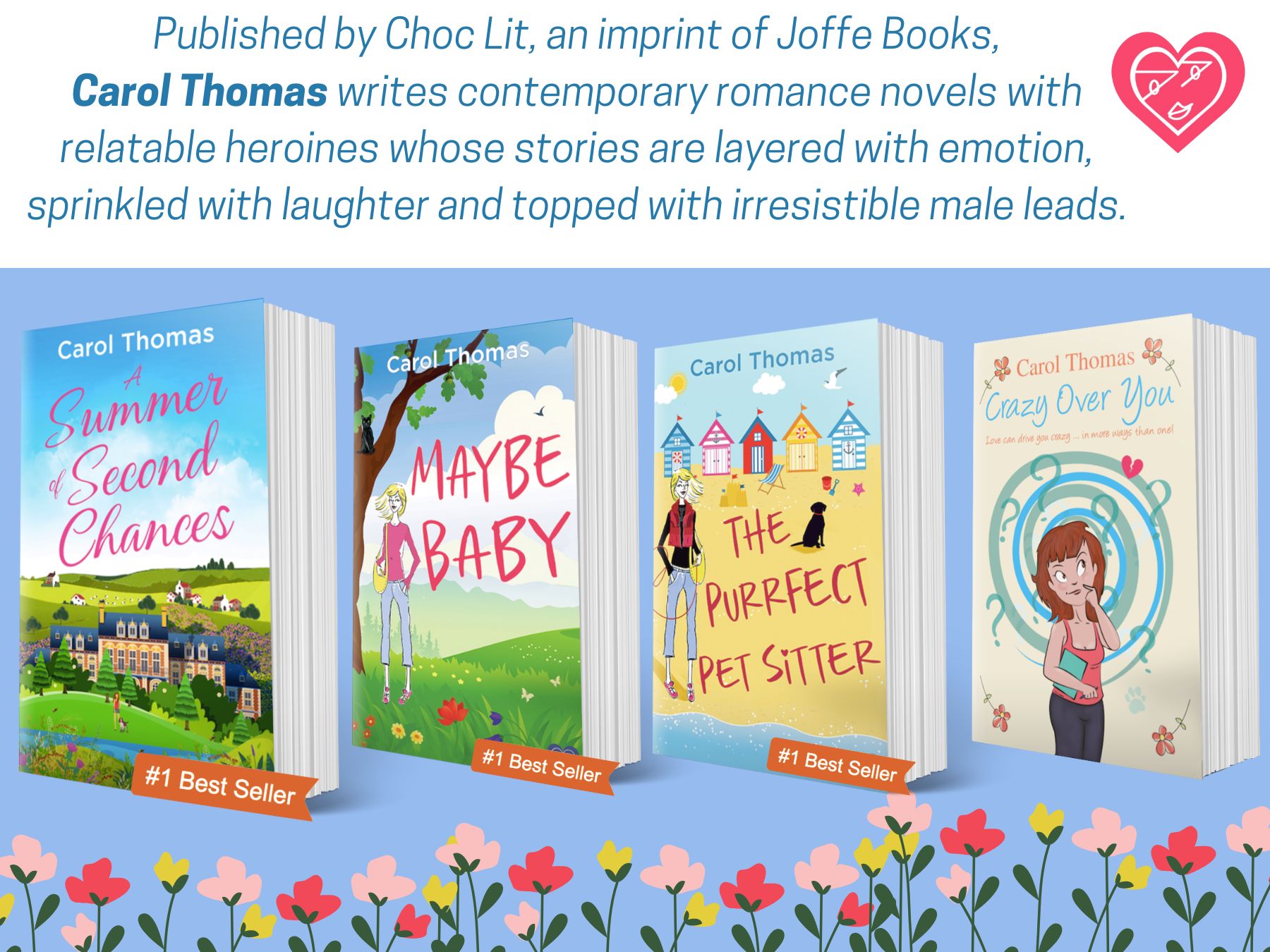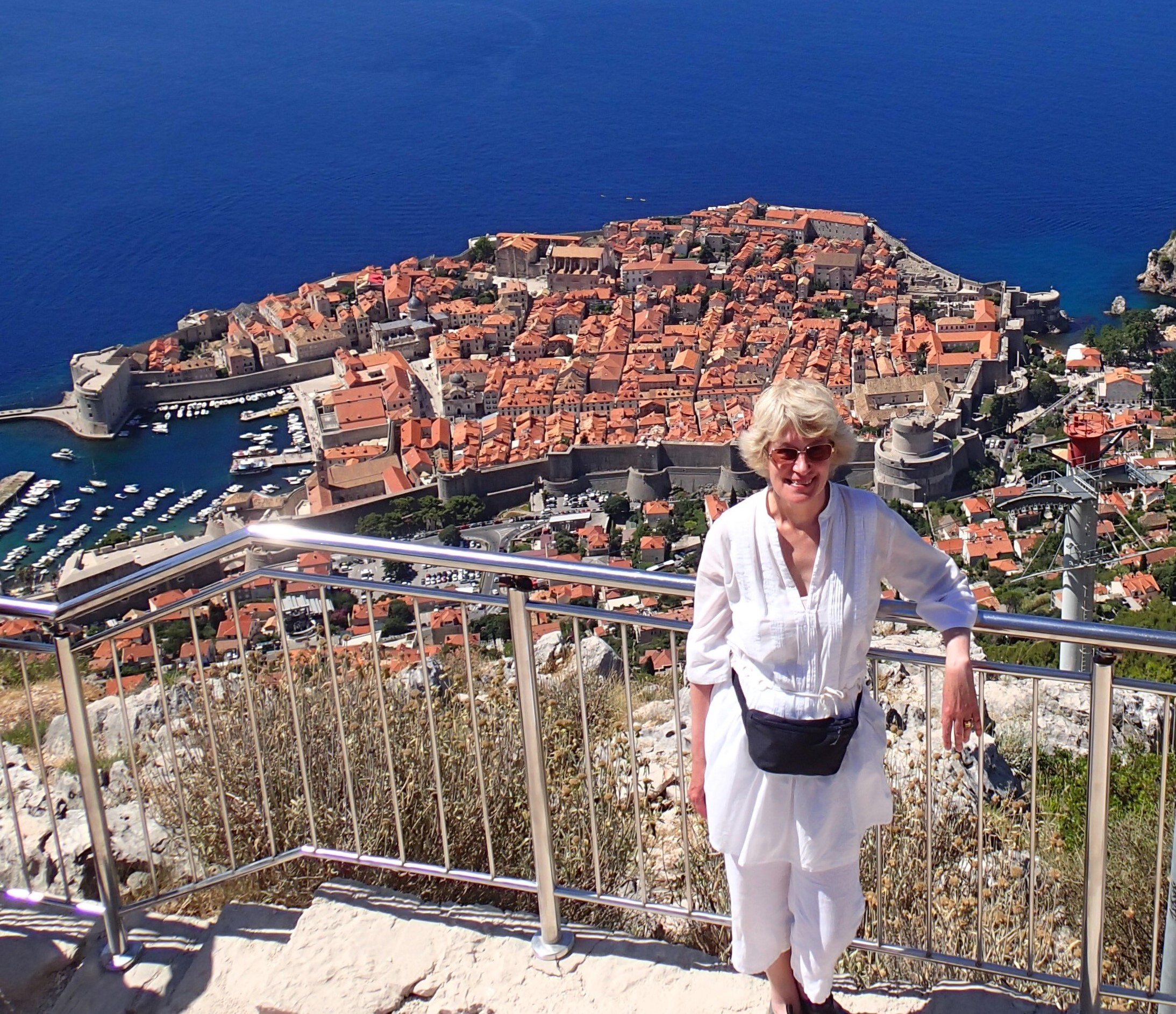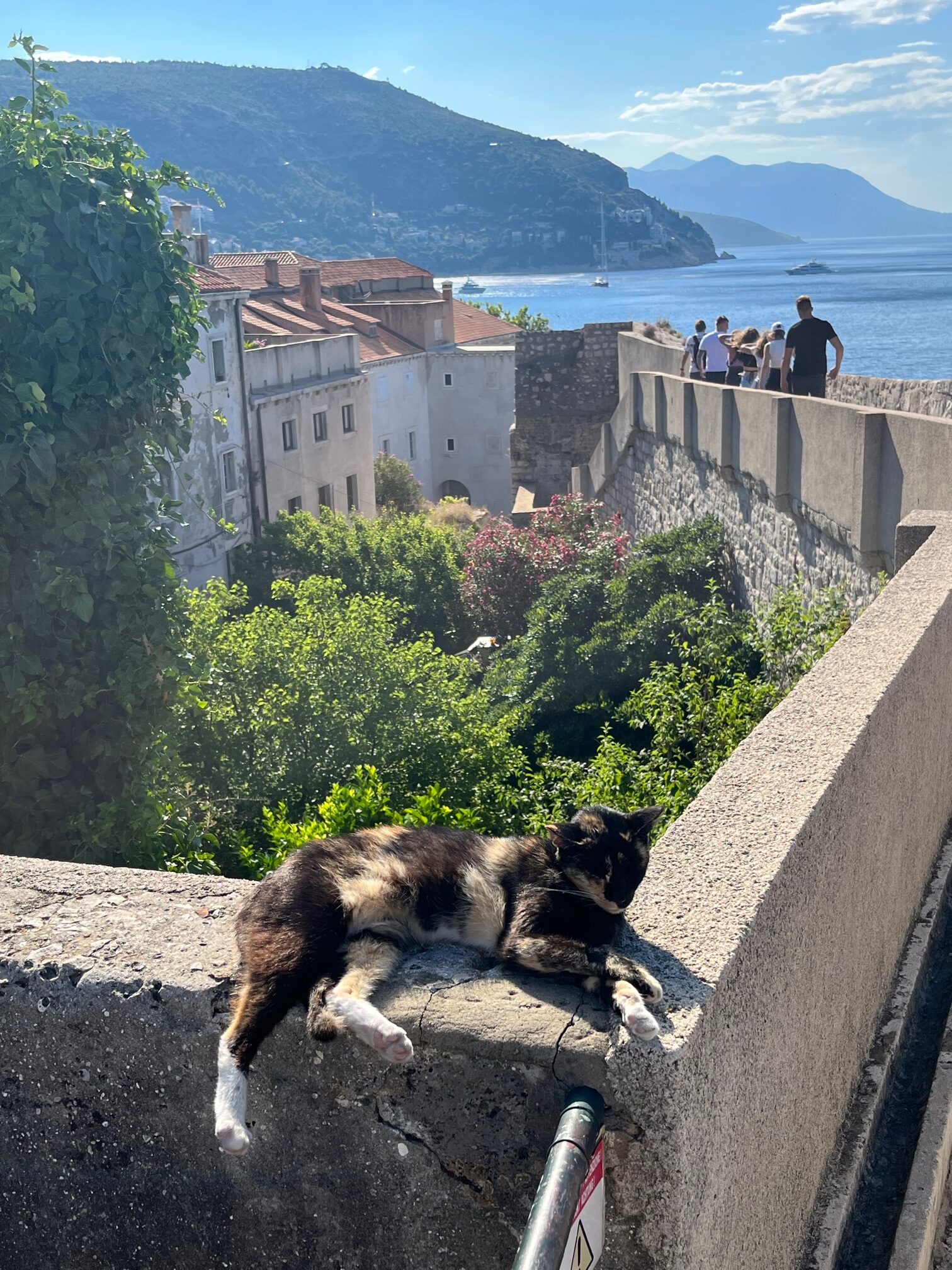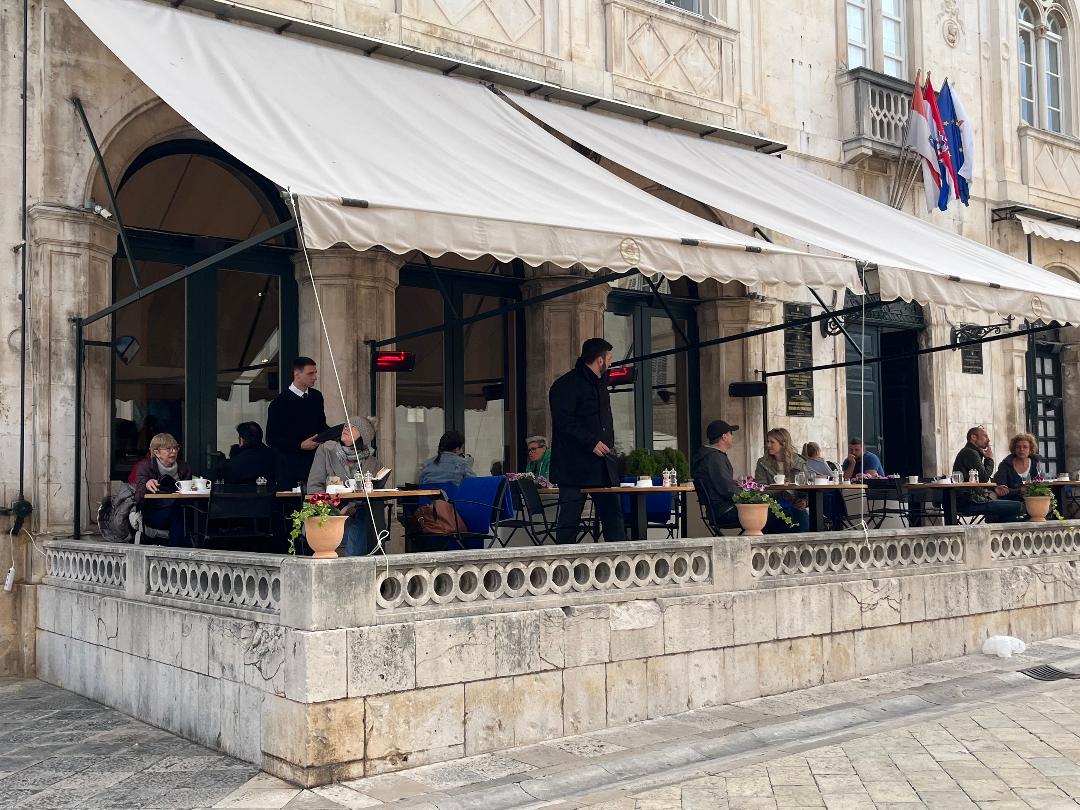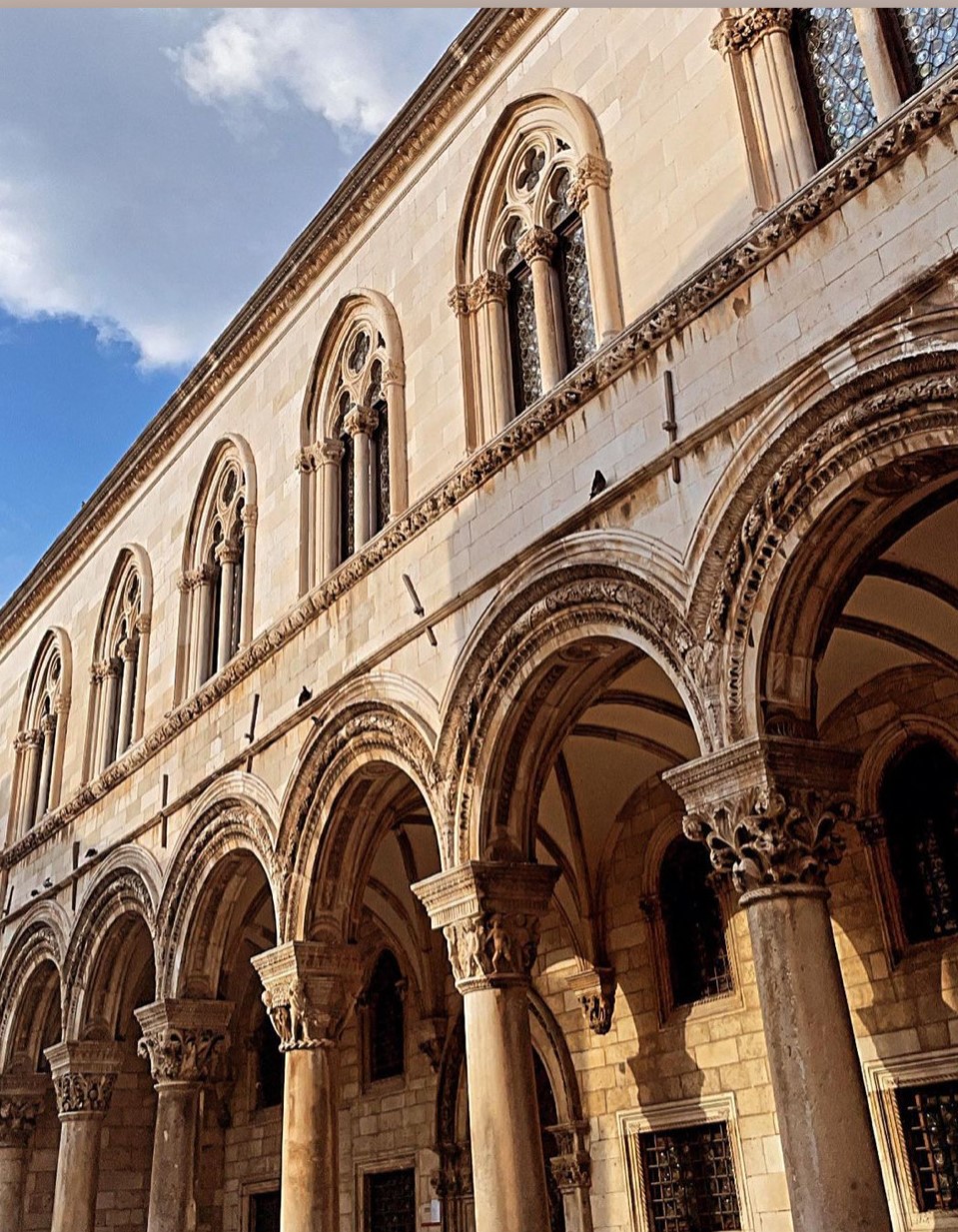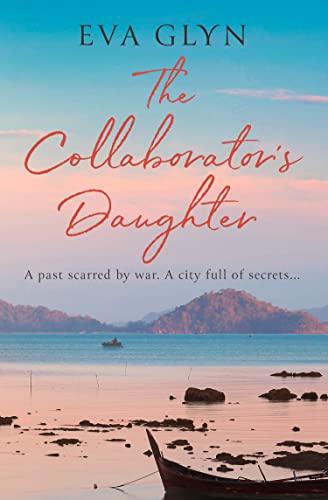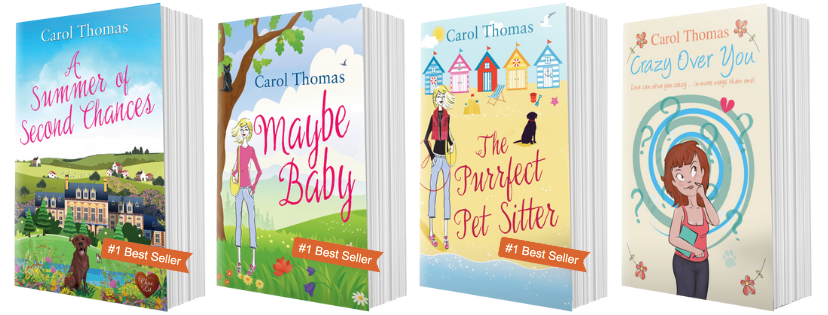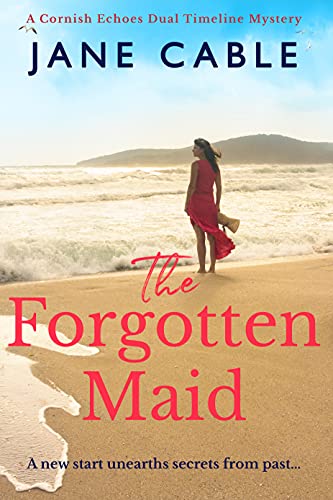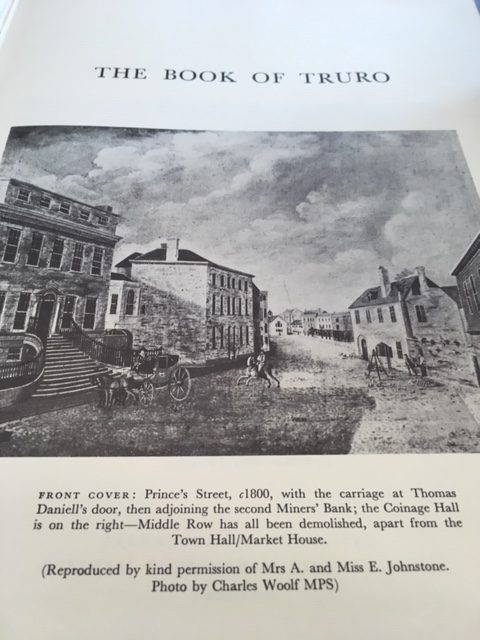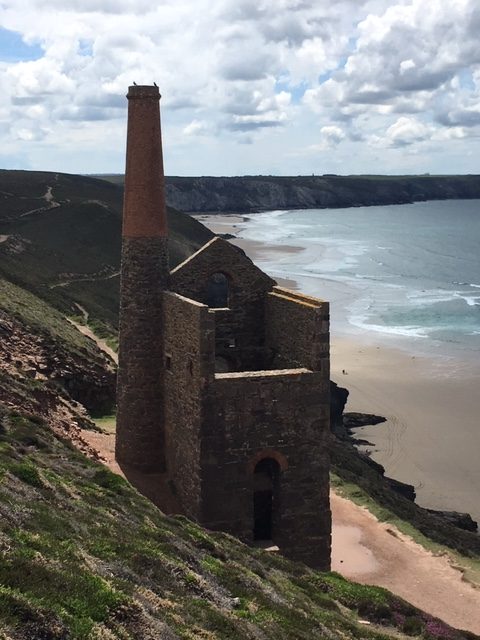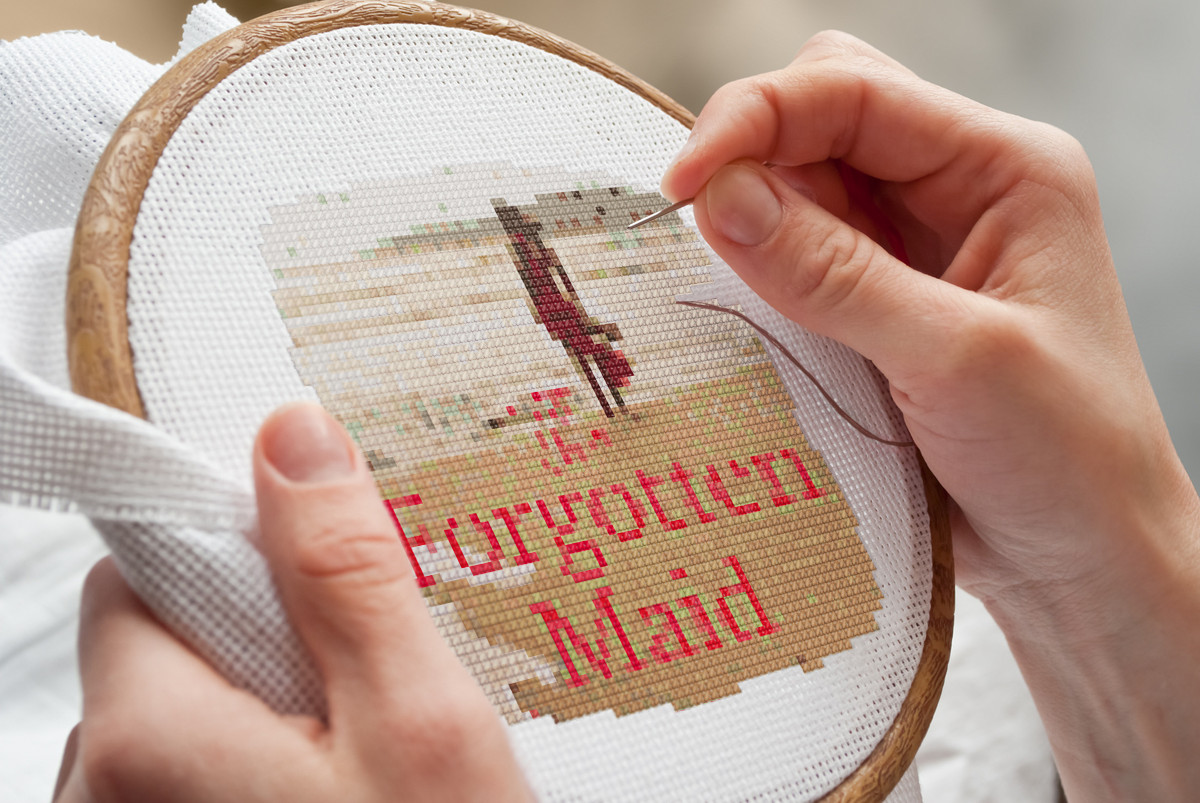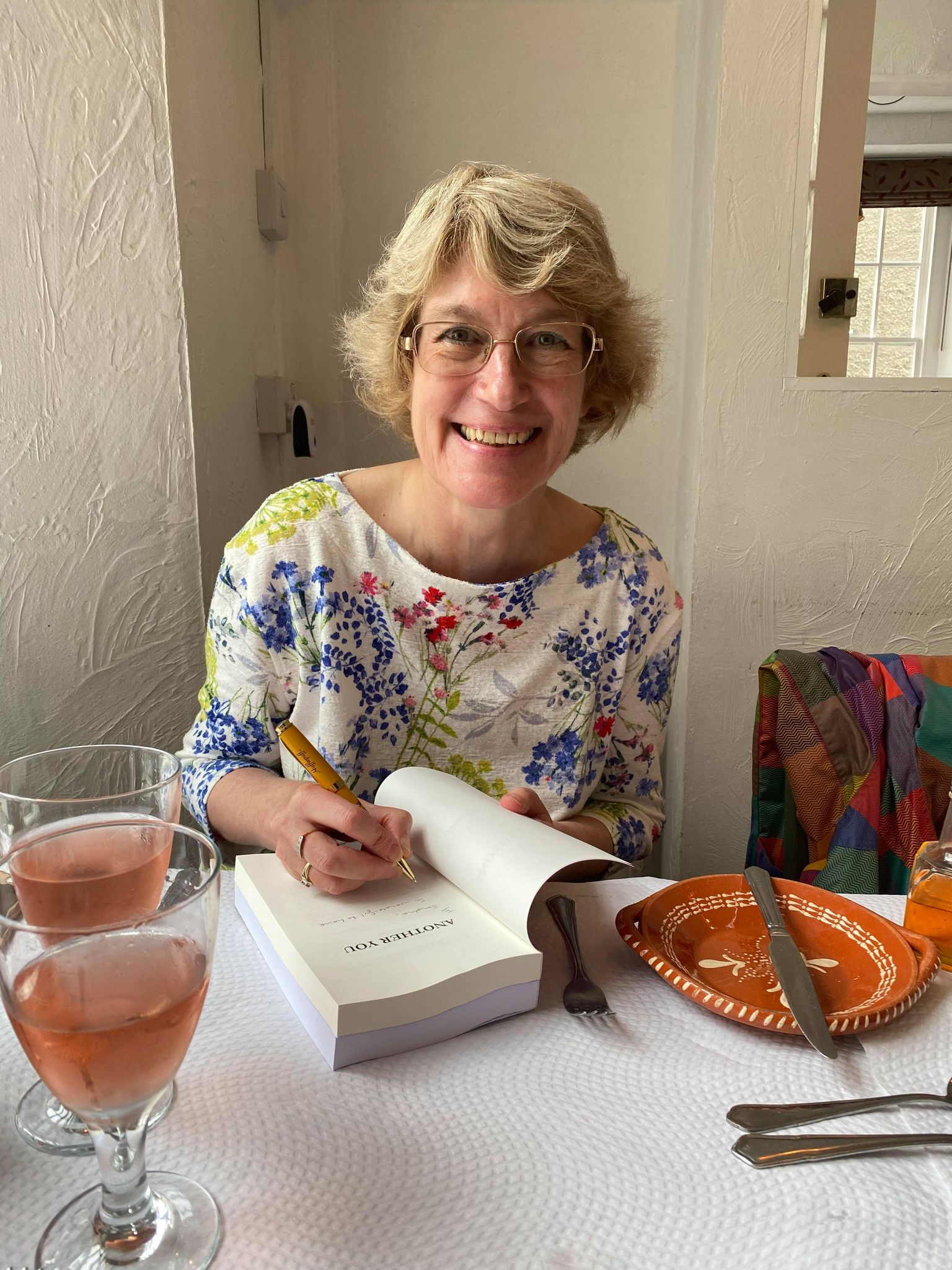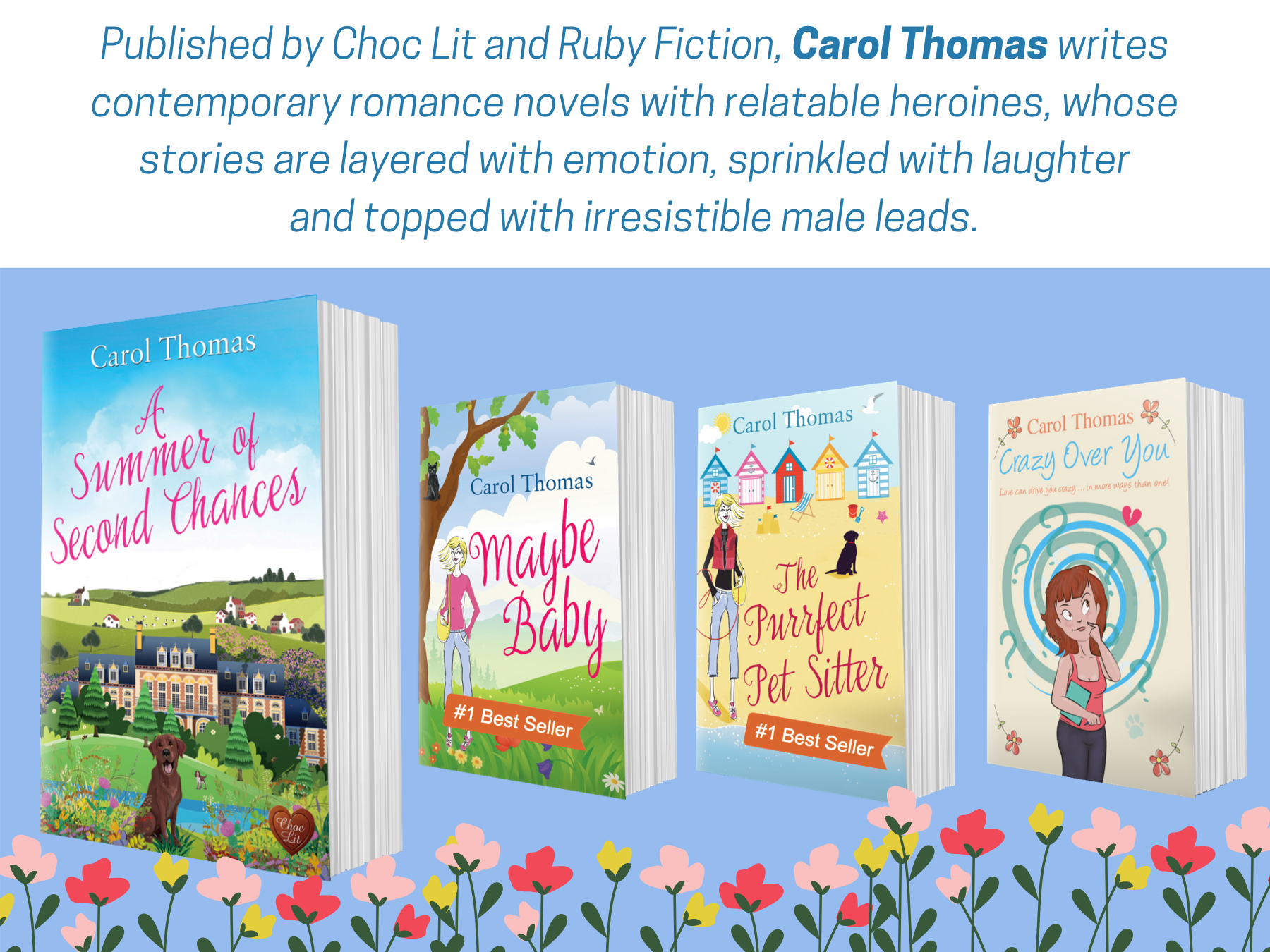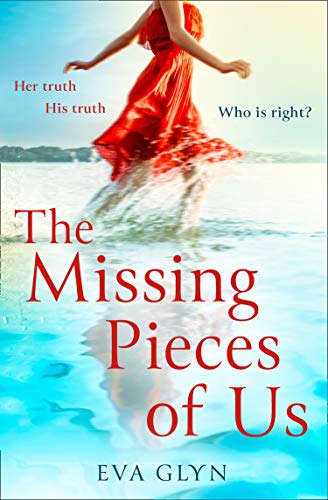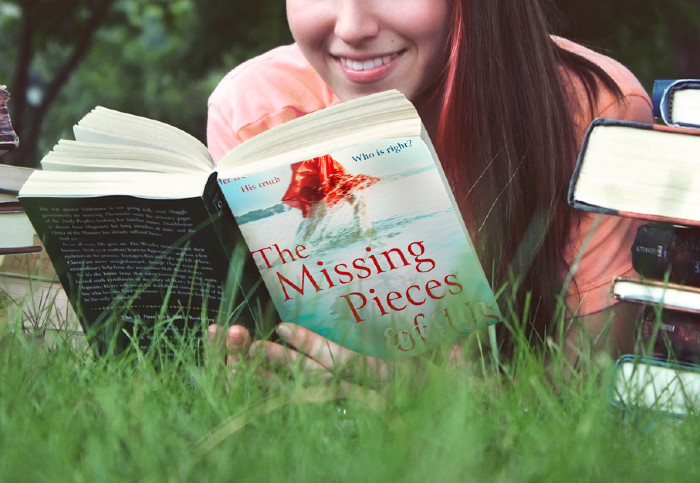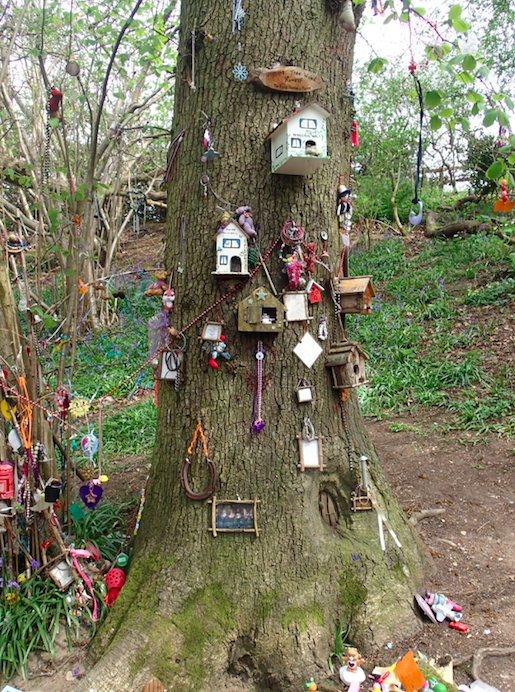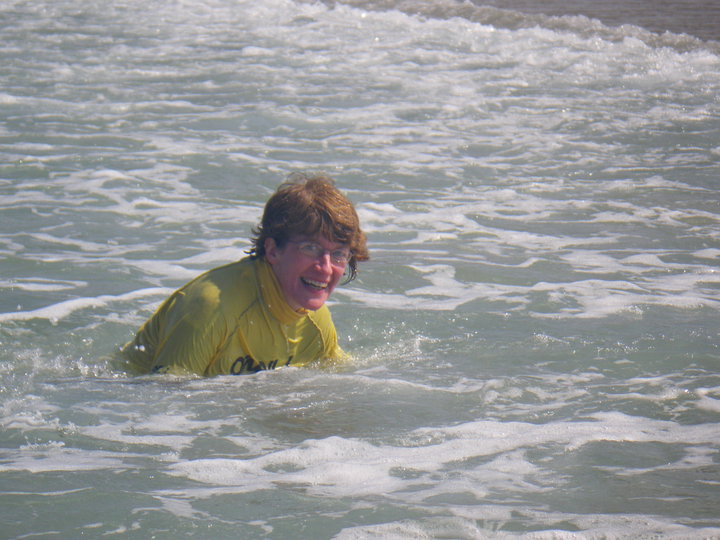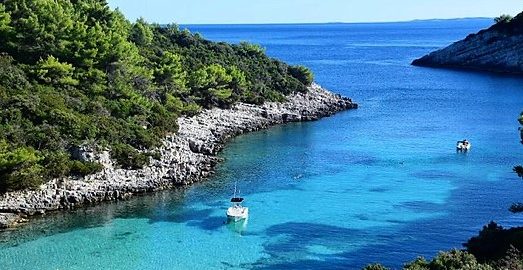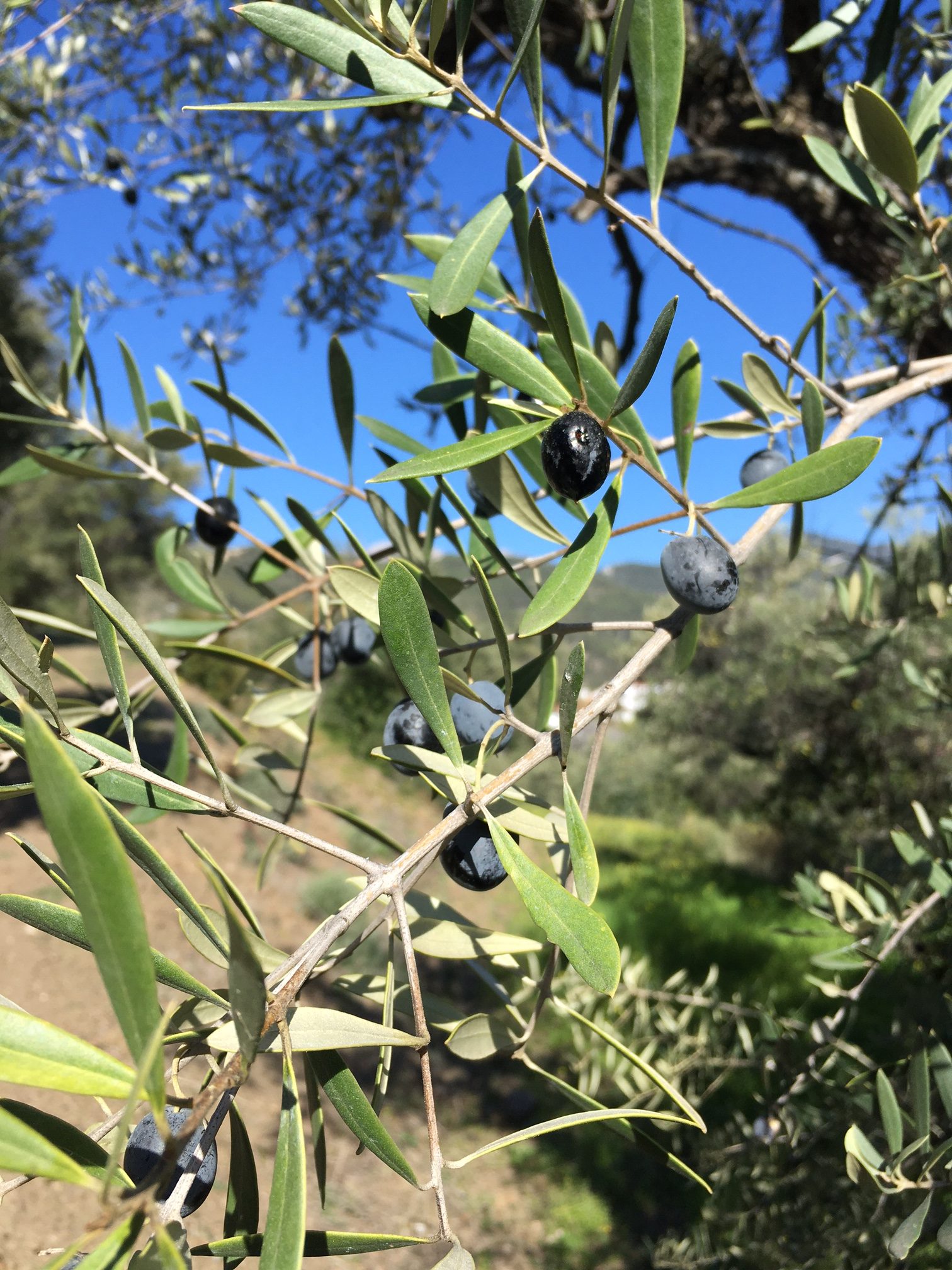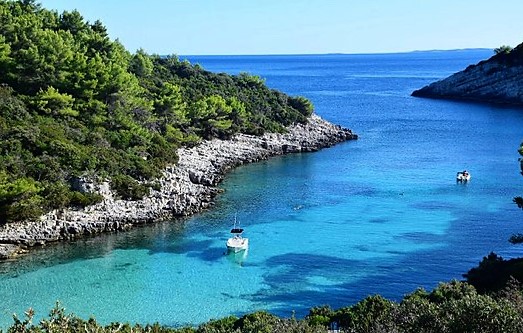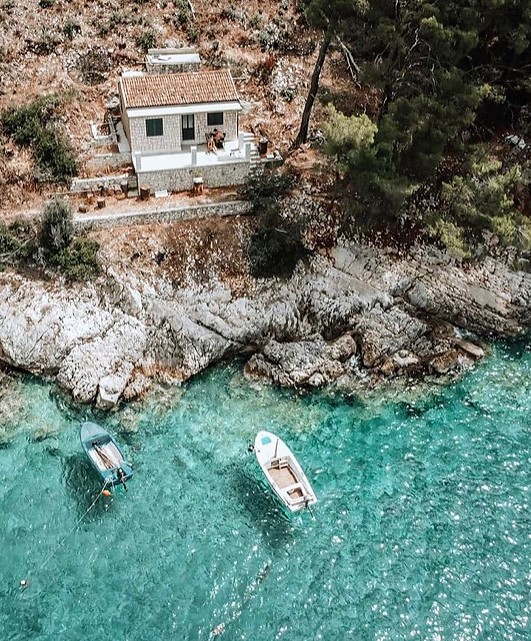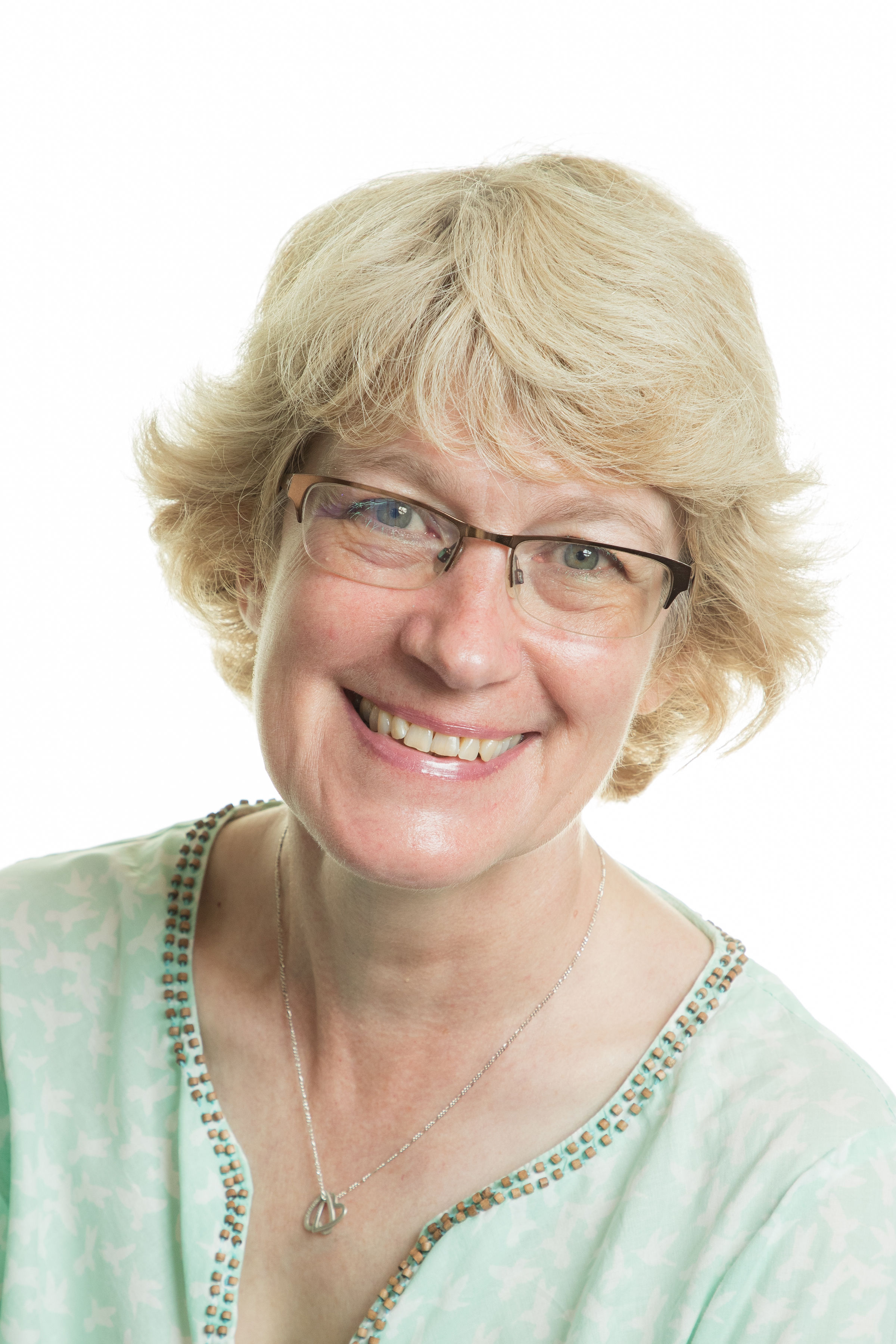Today, I am very happy to welcome Eva Glyn to my blog. Eva and I have known each other for almost a decade. She is a dear writing friend and author of many wonderful books, the latest of which, The Dubrovnik Book Club, is a moving story with a feline character who will steal your heart as much as the lead characters.
Please welcome Eva as she shares more about how that cat found its way into The Dubrovnik Book Club …
The first time I saw the draft cover for The Dubrovnik Book Club, the chair next to the table was empty. The next time there was a really cute little ginger and white cat on it.
“I hope you don’t mind,” my editor (a dyed-in-the-wool dog lover) told me, “but I asked the art department to pop one in.”
Not any cat, though; I recognised it straight away from one of the many pictures of Dubrovnik’s cats I’d shared on Instagram. This one was particularly gorgeous, photographed at ground level outside Sveti Vlaho church and taking more than a passing interest in the camera.
Dubrovnik’s cats are famous. The old town is full of them, many of no fixed abode, but others no doubt simply availing themselves of an extra meal from the various feeding stations which dot the narrow streets. Tourists who know about the cats arrive with bags of treats in their luggage, and I have no doubt at all that Dubrovnik is one of the best places in the world to be a cat about town.
There was a small problem with the cat on the cover of The Dubrovnik Book Club though – there was no cat in the story. Now, authors are (in)famous for taking their covers too literally, but I wouldn’t want to disappoint a reader who hoped to meet one, and I suppose I always knew that one of my main characters, Claire, was definitely a fan.
The Orthodox church was set back a little from the street, allowing the pale sunlight to bathe its creamy frontage. Behind the elaborate railings that protected its terrace were half a dozen or so of the old town’s stray cats. A huge ginger beast wrapped around the terracotta support of a potted palm, watched from a safe distance by an equally impressive white one with black and tan splodges. Several more stretched out on the paving, making the most of what little warmth there was in the rays of the sun.
Claire adored cats. They’d always had one at home when she was growing up; ever since a stray tortoiseshell had turned up at the back door, just as they were settling into their house in Chiswick. A movement behind the palm caught her eye, and two kittens emerged, eyes wide and tiny tails upright, before starting to tumble together, a mass of ginger and white fur.
Their innocent play was infectiously joyful and Claire could not help but laugh. She had to recapture that joy in life for herself and the only way to do it was by losing her fear.
So, of course, when one of the strays, a ‘wobbly kitten’ incapable of looking after herself properly, turns up in the courtyard behind the bookshop Claire and Luna take her in and christen her Mis, which is Croatian for mouse, because she squeaks rather than mews. Little do any of them realise that their kindness could actually put Mis’s future well-being in jeopardy…
Aw, thank you for sharing how Mis came to find her way into The Dubrovnik Book Club. I loved meeting her in the story, too. xx
About the book:
In a tiny bookshop in Dubrovnik’s historic Old Town, a book club begins…
Newly arrived on the sun-drenched shores of Croatia, Claire Thomson’s life is about to change forever when she starts working at a local bookshop. With her cousin Vedran, employee Luna and Karmela, a professor, they form an unlikely book club.
But when their first book club pick – an engrossing cosy crime – inspires them to embark upon an investigation that is close to the group’s heart, they quickly learn the value of keeping their new-found friends close as lives and stories begin to entwine…
Buy links for all formats and retailers can be found here.
My review:
I enjoy Eva Glyn’s writing, and the setting of The Dubrovnik Book Club comes to life brilliantly through her detailed depiction of the ancient city in which it is located. I greatly enjoyed seeing the city through the eyes of Karmela (perhaps my favourite character), a history professor with a passion for her subject and tenacity to uncover those hidden from history.
When I read a book by this author, I expect some characters to bring with them a dose of realism. The cast of The Dubrovnik Book Club are all such characters. They each carry their own battle scars – some from the literal battles they have fought defending their country and others born from their life experiences.
The main characters, the supporting cast, and even the stray cat they befriend have a personal struggle that forms part of their story. It draws them together and ultimately makes them the ideal support for each other. As they work together to save the book shop (and related book club), mysteries are solved, friendships are formed, and personal growth and freedoms are found. To that extent, despite the scars of war, fear of Covid, homophobia, abuse and Cancer (all of which are sensitively raised within the pages of the novel), there is a good balance of warmth, hope, love and friendship.
It is an enjoyable and engaging read that will undoubtedly leave you wanting to visit Dubrovnik.
About the Author:
Eva Glyn writes escapist relationship-driven fiction with a kernel of truth at its heart. She loves to travel and finds inspiration in beautiful places and the stories they hide.
Her love affair with Croatia began in 2019, and since then the country’s haunting histories and gorgeous scenery have proved fertile ground for her books, driven by her friendship with a tour guide she met there. His wartime story provided the inspiration for The Olive Grove and his help in creating a realistic portrayal of Croatian life has proved invaluable. Her second novel set in the country, An Island of Secrets is a dual timeline looking back to World War 2, and although her third is a contemporary romance featuring mature main characters, The Collaborator’s Daughter, has its roots in that conflict too.
Inspired by authors she loves such as Libby Page and Faith Hogan, Eva has wanted to write books about unlikely friendships for a long time. March 2024 saw her dream realised, when The Dubrovnik Book Club was published.
Eva lives in Cornwall, although she considers herself Welsh, and is lucky enough to be married to the love of her life, who she’s been with for almost thirty years. She also writes as Jane Cable.
Discover more about Eva Glyn: Website | Facebook | Instagram | Twitter | Newsletter sign up | Book Bub

